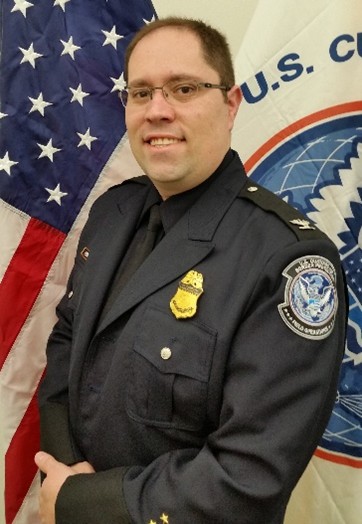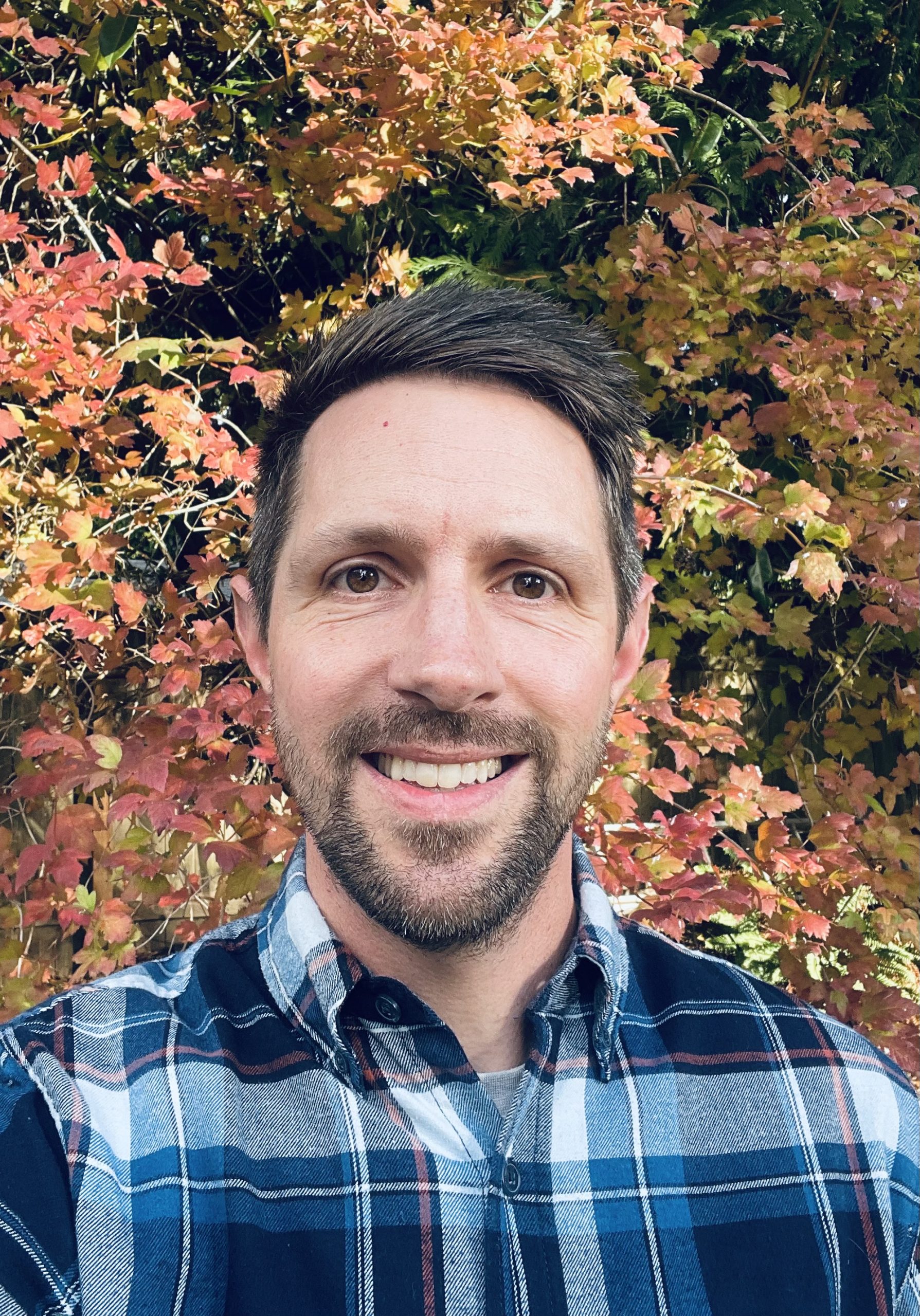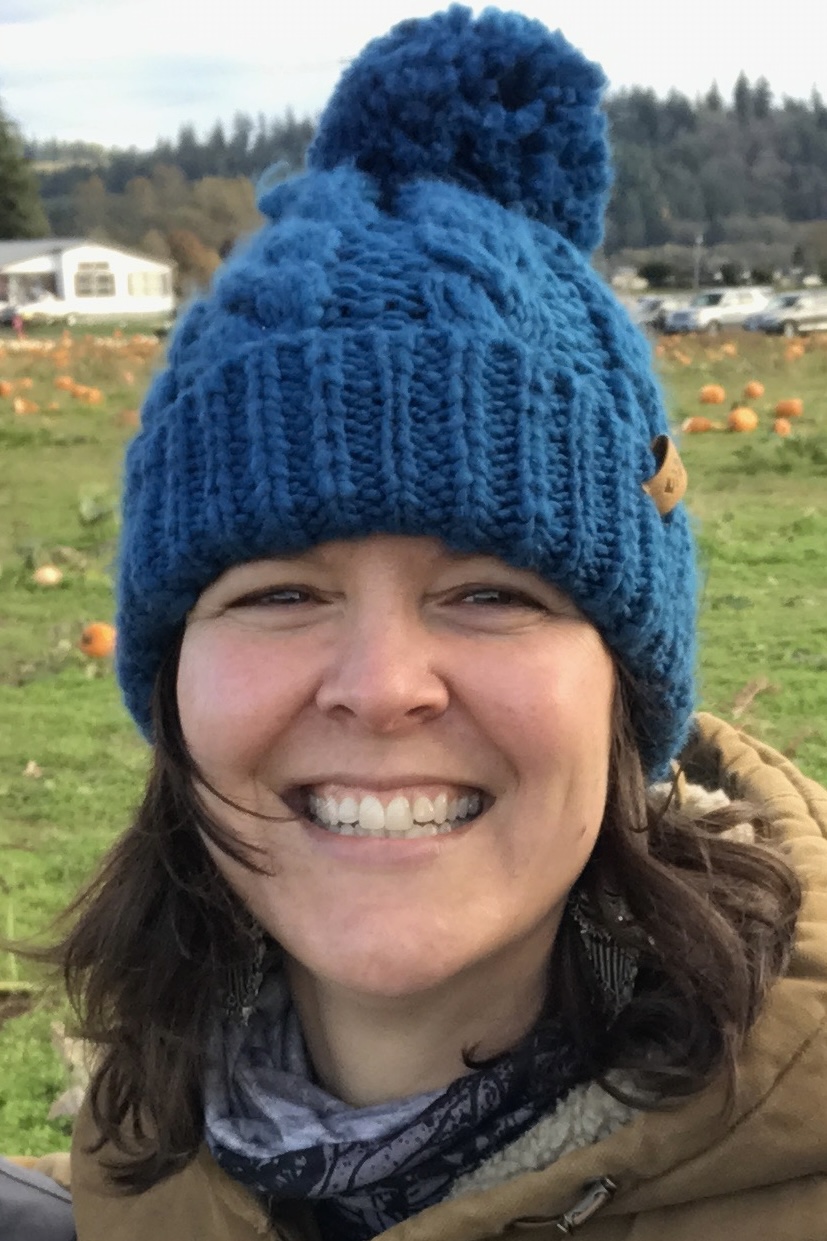
Todd Murray has more than twenty years of experience working with exotic pests in agriculture, home horticulture, and natural resources. Currently, he is the Agriculture and Natural Resource Unit director for Washington State University Extension. The unit has forty-five faculty serving the diverse needs of the agricultural and natural resource communities in all regions of Washington. Mr. Murray received a bachelor of science degree in biology from the University of Illinois-Chicago and a master of science degree in entomology from Washington State University.

Mary Fee, executive secretary for the Washington State Noxious Weed Control Board, started her career in noxious weed management as the Ferry County Noxious Weed Control Board coordinator. While managing on-the-ground control efforts of eastern Washington noxious weeds, she also worked with cooperative weed management groups and partner agencies. Leading up to her employment at Ferry County, she studied biology and environmental chemistry at Eastern Washington University. Ms. Fee also has gained valuable knowledge on western Washington noxious weed identification, control measures, and project management through her employment as a noxious weed control specialist for the King County Noxious Weed Control Program. Working in both eastern and western Washington, and for one of the smallest and the largest county governments in the state, has given her a unique perspective of noxious weed control efforts throughout Washington State.

Blain Reeves is an assistant manager for the Aquatic Resources Division in the Washington Department of Natural Resources. His responsibilities include aquatic invasive species management, wildstock geoduck fishery management, aquatic science, and geographic information systems. Mr. Reeves has worked for natural resources agencies in Washington for almost twenty-two years, the first three years coordinating the statewide spartina eradication effort for the Washington Department of Agriculture and nineteen years at the Department of Natural Resources working as a marine ecologist, environmental planner, and assistant division manager since 2009. He received a bachelor’s degree with a focus on marine ecology from The Evergreen State College.

Jason Anderson works as a riparian ecologist for the Stillaguamish Tribe of Indians Natural Resources Department. Currently he manages projects focused on riparian restoration in the Stillaguamish River Basin and is responsible for invasive plant control, native vegetation installation, native plant production, and monitoring. In addition to riparian projects, he has managed and served on teams to implement construction projects for fish passage, instream wood structures, and wetland mitigation in Western Washington. Prior to working in the realm of habitat restoration, Jason served as a Peace Corps volunteer at the Institute of Forest Ecology in Zvolen, Slovakia. He holds a bachelor of science degree in aquatic wildlife biology from the University of Montana and a master of science degree in freshwater ecology from Western Washington University.

For nearly twenty years, Steve Burke, the manager of the King County Noxious Weed Control Program, has worked on various aspects of invasive species management. With his honors degree in forest science from the University of Melbourne, Steve provided forestry extension services to landowners in Victoria, Australia. Following his interest in windbreaks and other agroforestry systems, he researched crop responses to windbreaks in Southeastern Australia resulting in a master’s degree in agricultural science and the book “Windbreaks." He managed statewide programs in community forestry and revegetation, and statewide programs in pest and plant, and animal management programs for the Victorian State Department of Natural Resources and Environment. Immediately before taking his current position, Mr. Burke worked for an environmental consulting firm on ecosystem restoration and regulatory compliance projects in Washington, California, and Alaska.

Justin Bush
Washington Department of Fish and Wildlife
Olympia
Justin Bush joined the Washington Department of Fish and Wildlife as the state’s aquatic invasive species policy coordinator in 2023. In this role, he leads statewide aquatic invasive species, ballast water and biofouling efforts. From 2016 to 2023 Mr. Bush was the executive coordinator of the Washington Invasive Species Council, charged with statewide policy-level direction, planning and coordination for preventing and stopping invasive species of all types. Mr. Bush has been working on invasive species issues since 2008 with federal, state, regional, and local organizations including King and Skamania Counties, and the Lady Bird Johnson Wildflower Center at the University of Texas at Austin where he managed the Texasinvasives.org statewide partnership. During these years, he has been involved in countless projects to prevent, detect, and control both aquatic and terrestrial invasive species and is passionate about reducing the threat they pose to the economy, native species, and ecosystems.

Alexei Calambokidis
Trout Unlimited
Olympia
Alexei Calambokidis is the Washington policy advisor for Trout Unlimited, the nation’s oldest and largest cold-water fisheries conservation organization dedicated to caring for and recovering America’s rivers and streams. Mr. Calambokidis has spent his entire life working, volunteering, and recreating in freshwater and marine areas across Alaska, Idaho, Montana, and Washington. Much of his work has been focused on breaking down the institutional barriers that prevent a more comprehensive conservation approach to protecting and recovering our natural resources and the environment.

Marcie Clement is Avista Utilities water quality specialist. She is a biologist with more than twenty years of experience working in the environmental compliance arena. She has been with Avista for a year, managing all things water and water quality related. She received her bachelor of science degree from Eastern Washington University and a master of science degree from the University of Colorado.

Luca Furnare joined the Seattle Field Office in March 2024 as the Supervisory Agriculture Operations Manager, a position which oversees the agriculture programs at the field office's 77 ports of entry. Additionally, he assists in supervising the field office's Trade Team, providing guidance on topics such as bonded facilities and de minimis programs. Prior to joining the field office, Mr. Furnare served as the Assistant Area Port Director – Trade for the Area Port of Seattle. In that role, he oversaw trade, agriculture, and administrative programs throughout the Area Port’s nine ports of entry. Mr. Furnare has served in various leadership roles, including as an Acting Director within U.S. Customs and Border Protection’s Agriculture Programs and Trade Liaison Directorate, Acting Assistant Director – Trade for the Seattle Field Office, and Acting Port Director for the Area Port of Seattle. Mr. Furnare graduated from the University of Idaho with a Master of Science degree in Soil Science. He has received two of the highest awards bestowed by the U.S. Animal and Plant Health Inspection Service: the Deputy Administrator’s Safeguarding Award and the Deputy Administrator’s Outstanding Achievement Award.

Adam Fyall has been with Benton County for over twenty-five years, currently as the Sustainable Development Manager in the Commissioners Office where he oversees the parks department, communications department, economic development initiatives, natural resources issues, and intergovernmental affairs. He is the chairman of the Yakima Basin Fish and Wildlife Recovery Board, which has a keen interest in habitat and invasive species issues in Central Washington; and he is the County’s liaison to the Benton County Noxious Weed Control Board. Outside of work, Adam is a beekeeper, fisherman, and naturalist, which further lend to his personal interests in invasive species issues; and he is a long-tenured board member and former president of the Tapteal Greenway organization, which seeks to conserve and restore the naturally functioning ecology of the lower Yakima River.

Wes Glisson is the aquatic plant specialist for the Washington State Department of Ecology. At Ecology, Wes conducts monitoring of aquatic invasive plants in lakes, rivers, and streams; assists local, county, state, and tribal governments with aquatic noxious weed management; and provides aquatic plant technical assistance to shoreline residents. He is a member of the Noxious Weed Committee of the Washington State Noxious Weed Control Board, which advises on changes and additions to the state’s noxious weed list. Prior to joining Ecology, Wes worked at the University of Minnesota’s Aquatic Invasive Species Research Center, where he conducted research on the biology and management of aquatic invasive plants in Minnesota lakes. Wes has a bachelor’s degree in biological sciences from Northern Illinois University and a master’s degree in plant biology and conservation from Northwestern University.

Todd Hass oversees special projects at the Puget Sound Partnership. Since joining the agency in 2010, his work has focused on building regional consensus and analytical tools, especially in supporting strategic recovery planning and marine science and maritime management, and advancing oil spill policy and vessel traffic risk assessment in the Salish Sea. In addition to serving on the Invasive Species Council, he is an active member of the Puget Sound Harbor Safety Committee and Puget Sound Ecosystem Monitoring Program. He graduated from the University of Washington with a bachelor of science degree in zoology and a doctorate in biology from the University of North Carolina at Chapel Hill. After graduate school, Mr. Hass returned to the University of Washington as a researcher and lecturer, where he specialized in citizen science and taught several ecology and conservation courses. He now serves as an affiliate assistant professor in the School of Marine and Environmental Affairs at the University of Washington.

Greg Haubrich is the interim assistant director of the Washington State Department of Agriculture's Plant Protection Division. He has been with the department for nearly forty years. In his current position, he leads staff and works with the industry and communities to aid in agricultural commerce and protect the environment.

Stacy Horton is a Policy Analyst and Biologist for the Washington Office of the Northwest Power and Conservation Council. The 1980 Northwest Power Act authorized Idaho, Montana, Oregon, and Washington to develop a regional power plan and fish and wildlife program to balance the Northwest's environment and energy needs. The heart of the council's mission is to preserve the benefits of the Columbia River for future generations.

Yolanda Inguanzo serves as the pest survey specialist of the Plant Protection and Quarantine program in Washington and Alaska under the U.S. Department of Agriculture’s Animal and Plant Health Inspection Service.

Joe Maroney has been with the Kalispel Tribe of Indians since January 1995 and serves as the director of Fishery and Water Resources. He manages three programs and twenty-two employees. He has a vast knowledge of Columbia River basin resource management issues and their impacts on anadromous and resident fish resources. Mr. Maroney's entire career has been spent working on hydropower relicensing and implementation across Washington, Idaho, and Montana. He was a two-time chairman of the Columbia Basin Fish and Wildlife Authority representing resident fish managers. Mr. Maroney has worked on bull trout recovery, main stem fish passage, and non-native fish suppression and eradication projects focused on northern pike and brook trout.

Heidi McMaster is the Pacific Northwest regional hazmat and invasive species coordinator for the federal Bureau of Reclamation. She previously worked in the Lower Colorado Regional Office for seven years before moving to the Pacific Northwest. Ms. McMaster obtained her master's degree in public health in environmental and occupational health from the University of Nevada Las Vegas and has a bachelor degree in environmental studies focusing on restoration ecology. She previously worked on the Yucca Mountain Project as a Department of Energy contractor and is a U.S. Army Disabled Veteran (Chemical Operations Specialist).

Regan McNatt is a Supervisory Fish Biologist and the Deputy Project Leader at the Service’s Western Washington Fish and Wildlife Conservation Office. Regan collaborates with county, state, tribal, federal, and non-profit partners to monitor and conserve native fish resources. Currently she is leading a study on predation impacts of non-native fish predators on juvenile salmon in Lake Washington. Regan is a member of the technical advisory group for the Chehalis Basin’s Aquatic Species Restoration Plan and has been an alternate member of the Washington Invasive Species Council since 2022. Prior to joining the U.S. Fish and Wildlife Service, Regan worked 20 years for NOAA Fisheries where she researched juvenile salmon ecology in the lower Columbia River and was the Station Chief for the Point Adams Research Station. Regan holds a bachelor’s degree from the University of North Carolina at Chapel Hill and a master’s degree from North Carolina State University.

This member represents the Thirteenth District for the U.S. Coast Guard.

Karen Ripley is a forest entomologist and forest health monitoring coordinator for the U.S. Forest Service in Portland. She also produces wildfire information as a member of one of the Northwest’s eight Type Two incident management teams. Ms. Ripley has a bachelor of arts degree in biology from Whitman College and a master of science degree in silviculture and forest protection (entomology) from the University of Washington. She worked as a gypsy moth trapper in the early 1990s when Asian gypsy moth were found in Washington, and subsequently helped organize a massive trapping effort to ensure that eradication efforts had been successful. She spent twenty-three years as the manager of the Forest Health Program for the Washington State Department of Natural Resources, providing private forest landowners and state land managers education, technical assistance, and financial assistance to meet diverse forest health goals.

Andrea Thorpe is the Natural Resources Program Manager at the Washington State Parks and Recreation Commission. In this position, she is responsible for guiding the natural resource stewardship throughout Washington’s state parks system. She also serves as an affiliate assistant professor in the School of Environmental and Forest Sciences at the University of Washington. Prior to working with Parks, she was the Washington Natural Heritage Program Manager in the Department of Natural Resources. She has also worked for the National Ecological Observatory Network and Institute for Applied Ecology. Andrea has a doctorate in ecology (focused on impacts of invasive plants on plant and microbial communities and nutrient cycling) from the University of Montana, a masters in ecology (focused on the population ecology of a rare plant) from San Diego State University, and bachelor of science in natural resources from Oregon State University.

Ray Willard is a landscape architect and the roadside maintenance program manager at the Washington State Department of Transportation. A thirty-year department employee, he has been working on the state's integrated, roadside vegetation management for the past twenty years. The primary focus of his work has been creating and refining the statewide system for long-term planning and controlling roadside weeds using a process modeled on the principles of Integrated Pest Management. Mr. Willard worked on the legislation creating the Washington Invasive Species Council and has been participating in the council's work since its inception. He is a graduate of the University of Washington with a bachelor's degree in landscape architecture and has been licensed as a landscape architect in Washington since 1990. He is a past president of the National Roadside Vegetation Management Association, former chair and current member of the National Transportation Research Board's committee on roadside maintenance operations, and past president of the Washington State Weed Association.